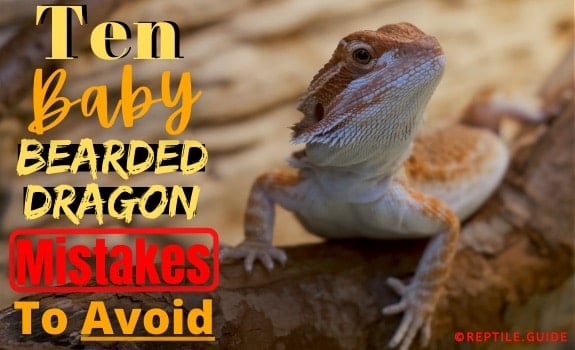
A Comprehensive Guide to Caring for a Baby Bearded Dragon
Bearded dragons are captivating reptiles that have gained immense popularity as pets due to their docile nature, striking appearance, and relatively low maintenance requirements. Baby bearded dragons, in particular, are adorable and require specific care to ensure their well-being and proper development. This comprehensive guide will provide you with all the essential information you need to provide optimal care for your baby bearded dragon.
Habitat and Enclosure
-
Enclosure: Baby bearded dragons require a spacious enclosure that allows them to move around comfortably. A 20-gallon tank is suitable for hatchlings, while a 40-gallon tank is recommended for juveniles. The enclosure should be made of glass or acrylic to provide clear visibility and adequate ventilation.
-
Substrate: The substrate, or bedding, in the enclosure should be safe and absorbent. Options include reptile carpet, paper towels, or a mixture of sand and soil. Avoid using substrates that can be ingested, such as wood chips or gravel.
-
Lighting: Bearded dragons require both UVB and UVA lighting to maintain their health and well-being. UVB lighting is essential for calcium absorption and bone development, while UVA lighting helps regulate their circadian rhythm and appetite. Provide a 10.0 UVB bulb and a separate UVA bulb, and ensure they are placed at the appropriate distance from the basking spot.
-
Temperature Gradient: Bearded dragons are ectothermic, meaning they rely on external heat sources to regulate their body temperature. Create a temperature gradient within the enclosure by providing a basking spot with a temperature of 95-105°F (35-40°C) and a cooler area with a temperature of 75-85°F (24-29°C). Use a thermometer to monitor the temperatures regularly.
-
Humidity: Baby bearded dragons require a humidity level of 30-40%. This can be achieved by misting the enclosure with lukewarm water several times a day or by placing a shallow dish of water in the cooler area.
Diet and Nutrition
-
Diet: Baby bearded dragons are insectivores and should be fed a diet primarily consisting of live insects. Suitable insects include crickets, dubia roaches, mealworms, and waxworms. Dust the insects with calcium powder several times a week to ensure adequate calcium intake.
-
Feeding Frequency: Feed baby bearded dragons small insects 2-3 times a day. As they grow, gradually reduce the feeding frequency to once a day.
-
Hydration: Provide a shallow dish of fresh water at all times. Misting the enclosure can also help with hydration.
Health and Hygiene
-
Handling: Handle baby bearded dragons gently and support their body fully. Avoid excessive handling, as it can stress them out.
-
Bathing: Bathe baby bearded dragons once a week in lukewarm water. This helps keep their skin clean and hydrated.
-
Shedding: Baby bearded dragons shed their skin regularly as they grow. Provide a rough surface in the enclosure, such as a rock or piece of driftwood, to help them shed.
-
Veterinary Care: Regular veterinary checkups are essential for monitoring your baby bearded dragon’s health and detecting any potential issues early on.
Socialization and Enrichment
-
Socialization: Bearded dragons are solitary animals and do not require companionship. However, they can benefit from gentle handling and interaction with their human caregivers.
-
Enrichment: Provide enrichment activities to stimulate your baby bearded dragon’s mental and physical well-being. This can include hiding places, climbing structures, and interactive toys.
Common Health Issues
-
Metabolic Bone Disease: This condition occurs due to a lack of calcium and UVB exposure. Symptoms include soft bones, lethargy, and muscle weakness.
-
Respiratory Infections: Respiratory infections can be caused by bacteria or viruses. Symptoms include sneezing, wheezing, and discharge from the nose or mouth.
-
Parasites: Parasites, such as worms or mites, can infest bearded dragons and cause a variety of health problems.
-
Impaction: Impaction occurs when a bearded dragon ingests a foreign object that cannot be passed through the digestive tract. Symptoms include constipation, lethargy, and loss of appetite.
Conclusion
Caring for a baby bearded dragon is a rewarding experience that requires dedication and attention to detail. By providing them with an appropriate habitat, proper nutrition, and regular health care, you can ensure that your baby bearded dragon thrives and enjoys a long and healthy life. Remember to seek veterinary advice whenever necessary and enjoy the companionship of this fascinating reptile.
